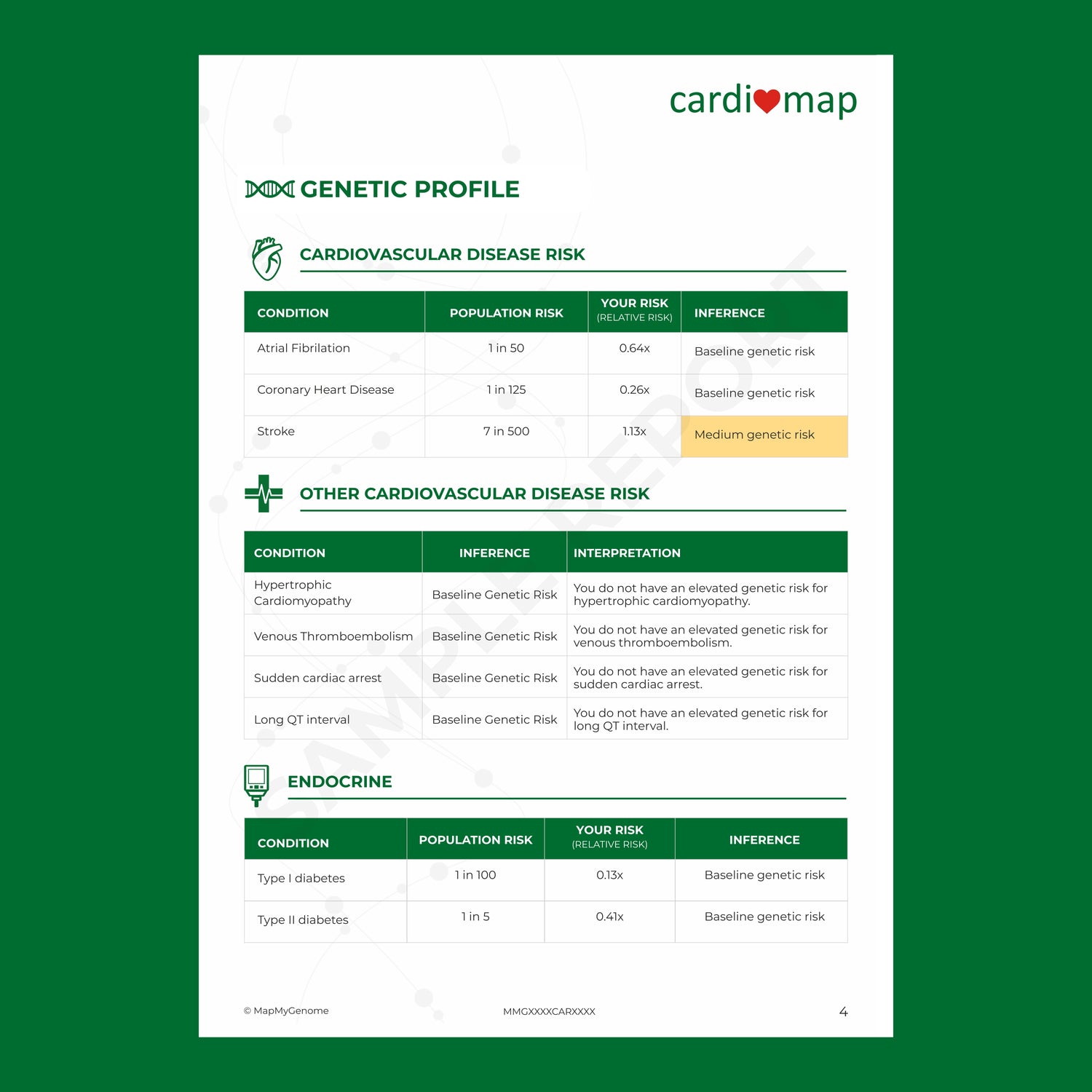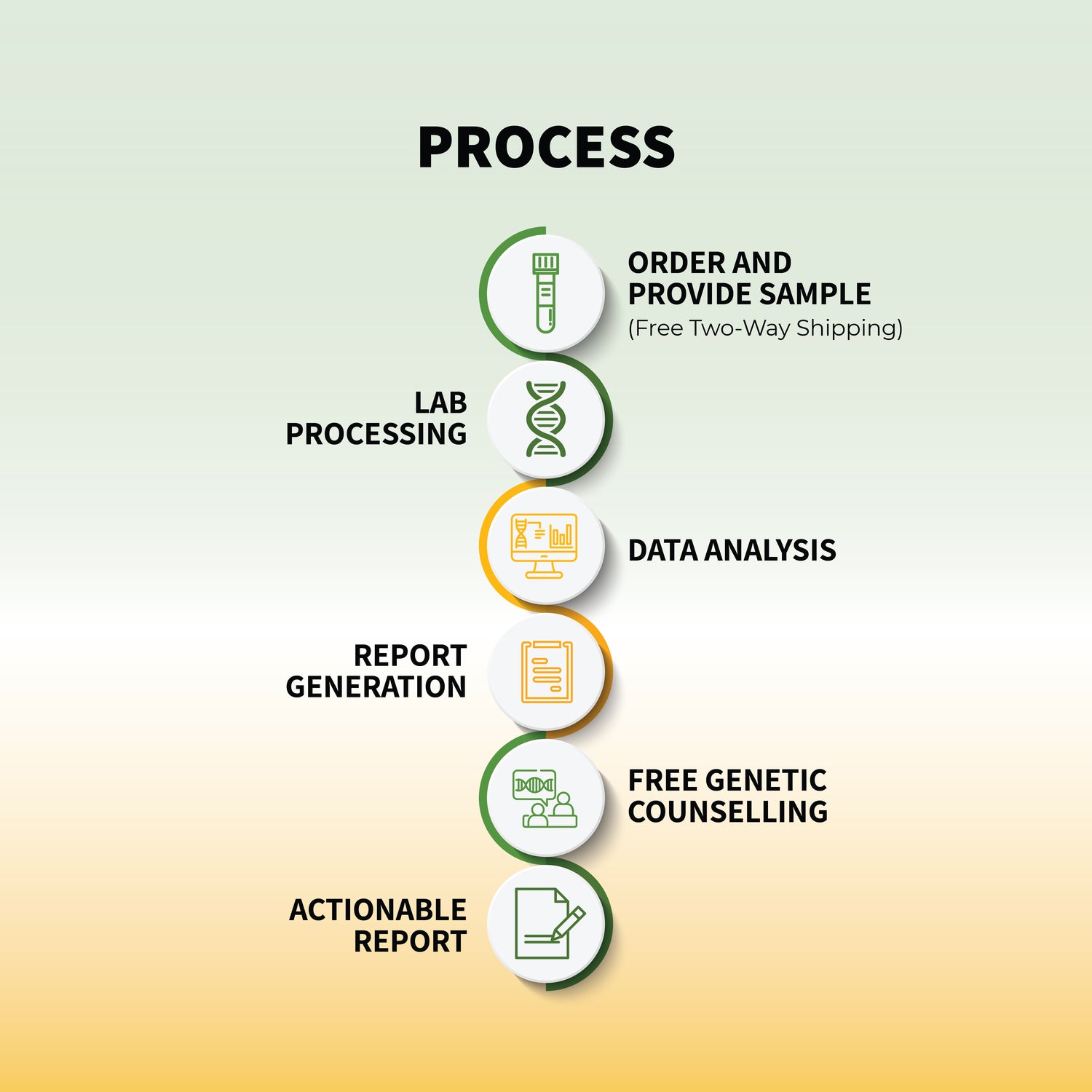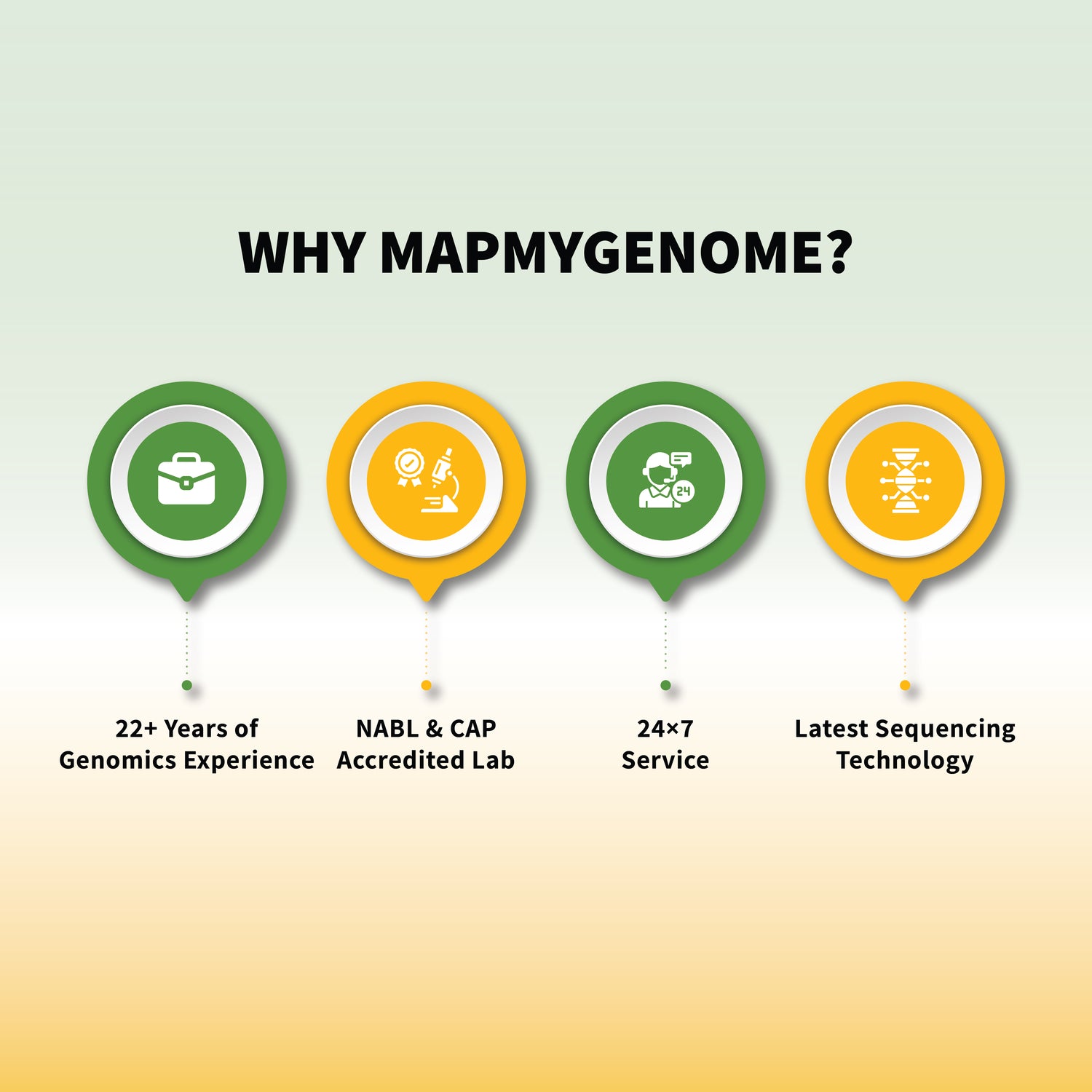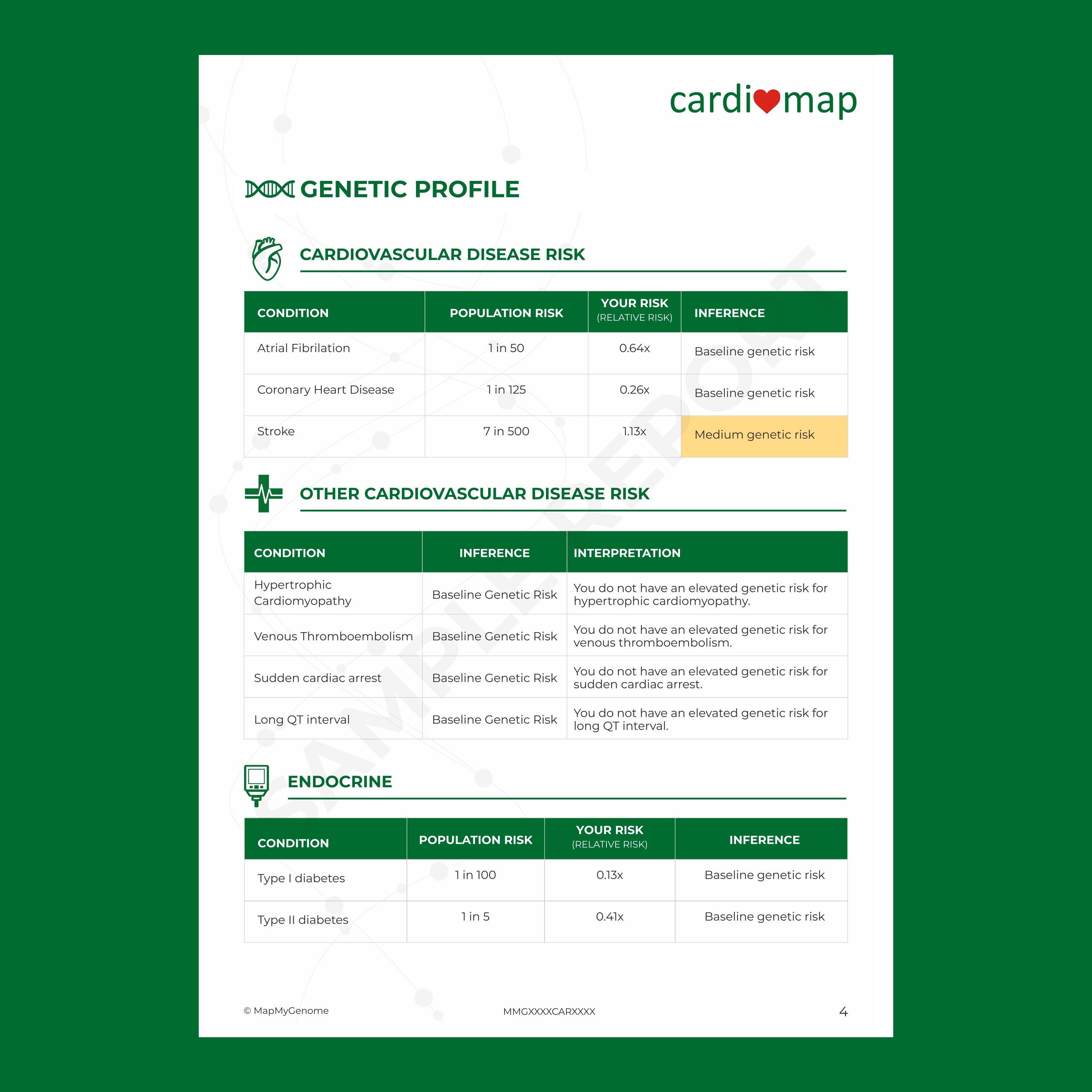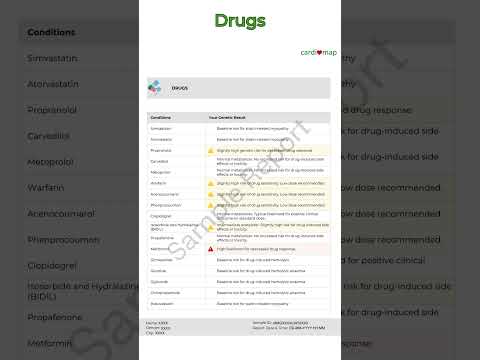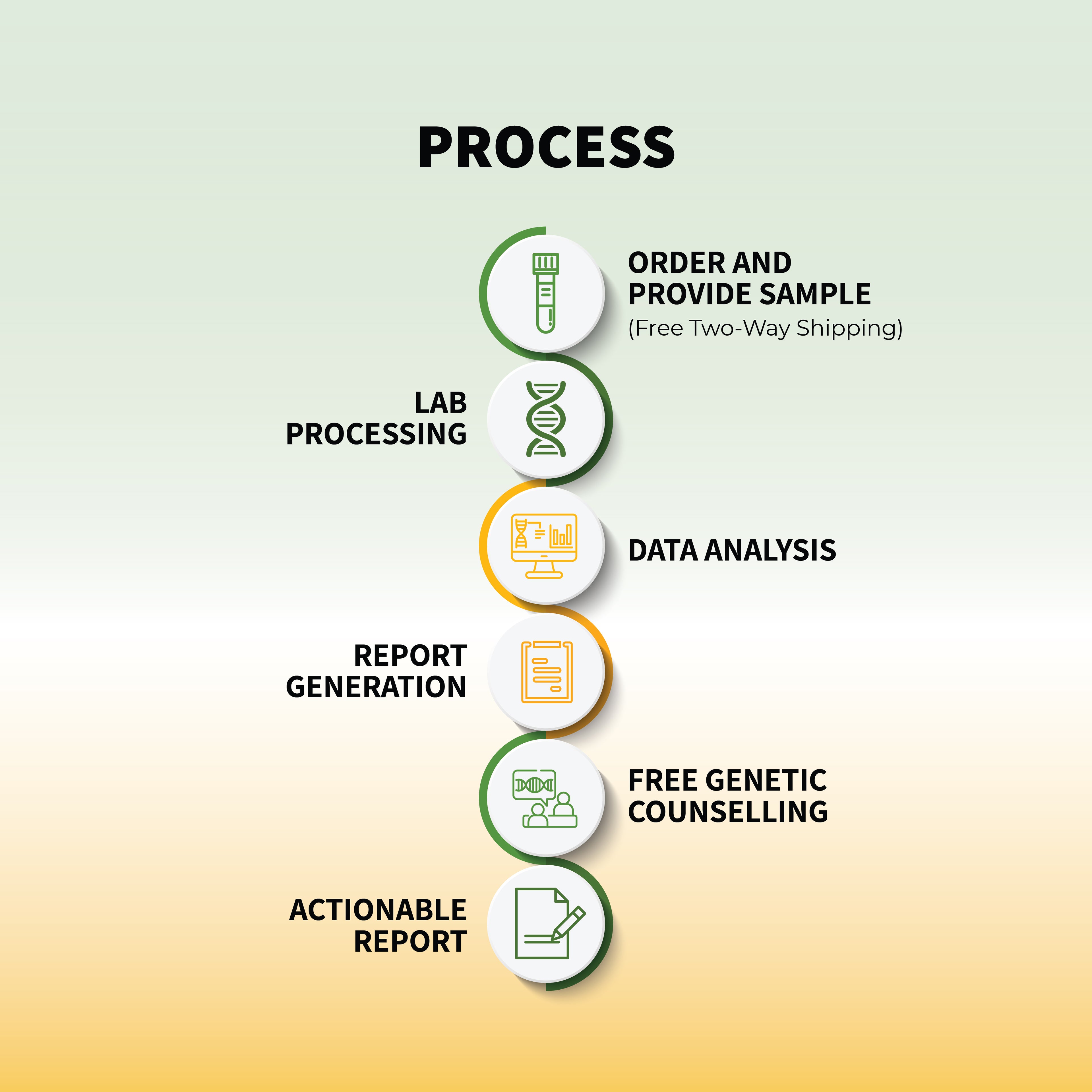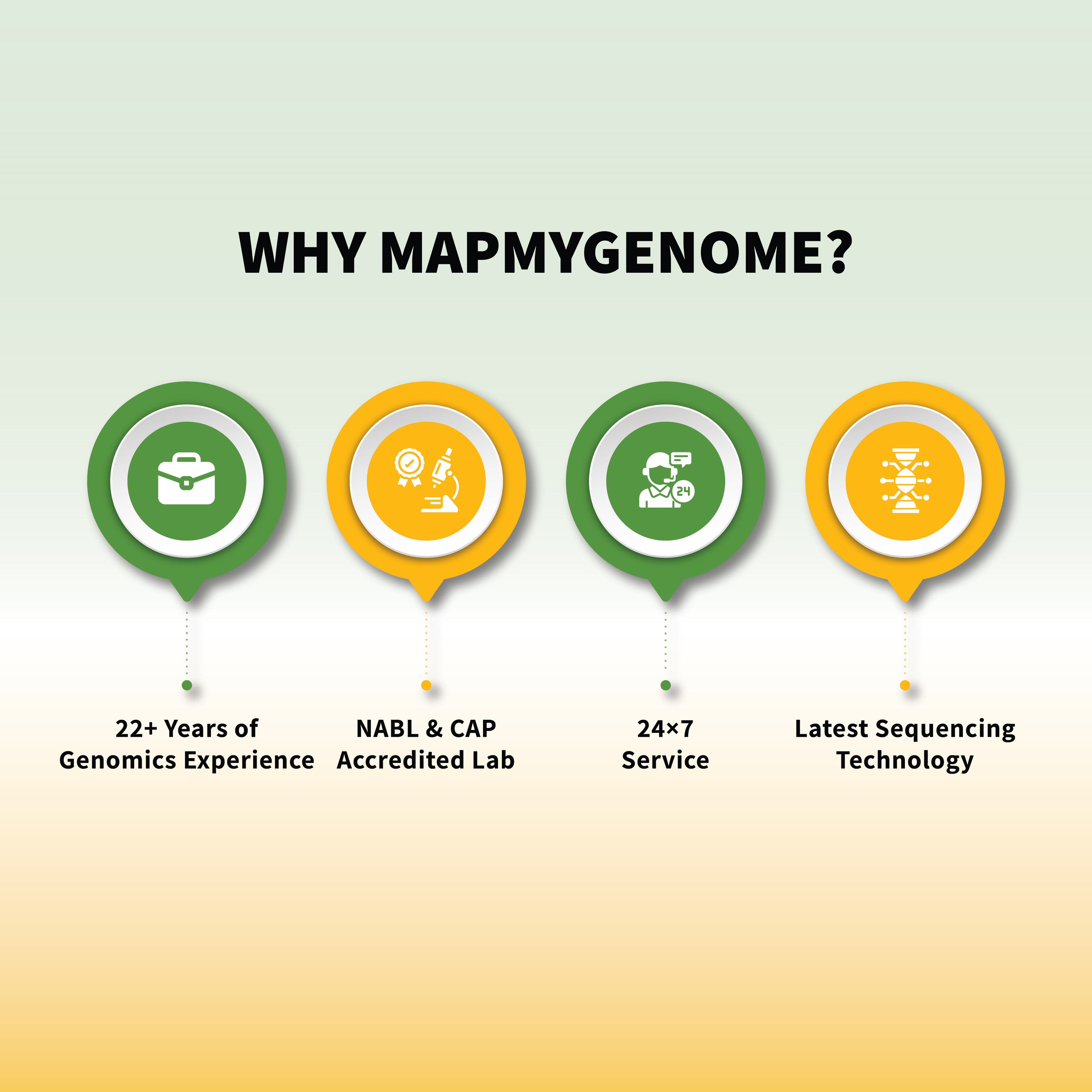मधुमेह एक पुरानी बीमारी है जो दुनिया भर में लाखों लोगों को प्रभावित करती है, अगर इसका सही तरीके से प्रबंधन न किया जाए तो यह गंभीर स्वास्थ्य जटिलताओं का कारण बन सकती है। जबकि आहार और व्यायाम जैसे जीवनशैली कारक मधुमेह के विकास में महत्वपूर्ण भूमिका निभाते हैं, आनुवंशिकी का भी एक महत्वपूर्ण प्रभाव होता है। अपनी आनुवंशिक प्रवृत्ति को समझना आपको अपने जोखिम को प्रबंधित करने में सक्रिय कदम उठाने में सक्षम बना सकता है। यह ब्लॉग इस बात पर गहराई से चर्चा करेगा कि आनुवंशिक परीक्षण मधुमेह विकसित होने के आपके जोखिम की पहचान करने में कैसे मदद कर सकता है और यह उन लोगों के लिए एक मूल्यवान उपकरण क्यों हो सकता है जिनके परिवार में इस स्थिति का इतिहास है।
मधुमेह और इसके जोखिम कारकों को समझना
मधुमेह तब होता है जब शरीर रक्त शर्करा के स्तर को प्रभावी ढंग से नियंत्रित करने में असमर्थ होता है। मधुमेह के दो मुख्य प्रकार हैं:
-
टाइप 1 डायबिटीज़ : एक ऑटोइम्यून स्थिति जिसमें शरीर की प्रतिरक्षा प्रणाली अग्न्याशय में इंसुलिन बनाने वाली कोशिकाओं पर हमला करती है। यह प्रकार आमतौर पर बचपन या किशोरावस्था में विकसित होता है और जीवनशैली कारकों से कम प्रभावित होता है।
-
टाइप 2 डायबिटीज़ : सबसे आम रूप, जिसमें शरीर इंसुलिन के प्रति प्रतिरोधी हो जाता है या सामान्य रक्त शर्करा के स्तर को बनाए रखने के लिए पर्याप्त इंसुलिन का उत्पादन नहीं करता है। टाइप 2 डायबिटीज़ अक्सर मोटापे, शारीरिक निष्क्रियता और खराब आहार से जुड़ा होता है, लेकिन आनुवंशिकी भी एक महत्वपूर्ण भूमिका निभाती है।
इनके अतिरिक्त, गर्भावधि मधुमेह गर्भावस्था के दौरान भी हो सकता है और इससे जीवन में आगे चलकर टाइप 2 मधुमेह विकसित होने का खतरा बढ़ जाता है।
टाइप 2 मधुमेह के जोखिम कारक :
- मधुमेह का पारिवारिक इतिहास
- मोटापा या अधिक वजन
- आसीन जीवन शैली
- अस्वास्थ्यकारी आहार
- उच्च रक्तचाप
- आयु (45 वर्ष या उससे अधिक)
- जातीय पृष्ठभूमि (कुछ जातीय समूहों में उच्च प्रचलन)
हालांकि ये कारक सर्वविदित हैं, लेकिन वे पूरी तरह से यह नहीं समझा पाते कि कुछ लोगों को मधुमेह क्यों होता है और दूसरों को नहीं। यहीं पर आनुवंशिकी की भूमिका आती है।
मधुमेह के लिए आनुवंशिक परीक्षण क्या है?
मधुमेह के लिए आनुवंशिक परीक्षण में आपके डीएनए का विश्लेषण करना शामिल है ताकि इस स्थिति के विकसित होने के जोखिम से जुड़े विशिष्ट जीन या जीन उत्परिवर्तन की पहचान की जा सके। शोधकर्ताओं ने कई जीन की पहचान की है जो टाइप 2 मधुमेह के जोखिम में योगदान करते हैं, जिनमें शामिल हैं:
-
TCF7L2 : इस जीन में भिन्नताएं टाइप 2 मधुमेह के बढ़ते जोखिम से दृढ़ता से जुड़ी हुई हैं। इस जीन के कुछ वेरिएंट वाले लोगों में यह स्थिति विकसित होने की अधिक संभावना होती है।
-
SLC30A8 : यह जीन इंसुलिन उत्पादन में भूमिका निभाता है। भिन्नताएं इस बात को प्रभावित कर सकती हैं कि रक्त शर्करा के स्तर के जवाब में अग्न्याशय इंसुलिन कैसे जारी करता है।
-
PPARG : यह जीन शरीर में वसा के भंडारण और उपयोग को प्रभावित करता है। PPARG में उत्परिवर्तन इंसुलिन प्रतिरोध को जन्म दे सकता है, जो टाइप 2 मधुमेह का एक प्रमुख कारक है।
इन तथा अन्य जीनों का विश्लेषण करके, आनुवंशिक परीक्षण आपके व्यक्तिगत जोखिम की स्पष्ट तस्वीर उपलब्ध करा सकता है।
आनुवंशिक परीक्षण कैसे काम करता है
मधुमेह के लिए आनुवंशिक परीक्षण की प्रक्रिया सरल है और इसमें आमतौर पर निम्नलिखित चरण शामिल होते हैं:
-
परामर्श : आप एक स्वास्थ्य सेवा प्रदाता या आनुवंशिक परामर्शदाता के साथ परामर्श से शुरुआत करते हैं जो आपके चिकित्सा और पारिवारिक इतिहास का आकलन करेगा और आनुवंशिक परीक्षण के संभावित लाभों पर चर्चा करेगा।
-
नमूना संग्रहण : डीएनए नमूना आमतौर पर लार के नमूने या रक्त के माध्यम से एकत्र किया जाता है।
-
प्रयोगशाला विश्लेषण : नमूने को प्रयोगशाला में भेजा जाता है, जहां मधुमेह से जुड़े विशिष्ट आनुवंशिक मार्करों के लिए इसका विश्लेषण किया जाता है।
-
परिणाम और व्याख्या : कुछ सप्ताह के बाद, परिणाम आपके स्वास्थ्य सेवा प्रदाता या आनुवंशिक परामर्शदाता को वापस भेज दिए जाते हैं, जो बताएंगे कि मधुमेह विकसित होने के आपके जोखिम के लिए इनका क्या अर्थ है।
-
कार्य योजना : आपके परिणामों के आधार पर, आप और आपका स्वास्थ्य सेवा प्रदाता आपके जोखिम को प्रबंधित करने या कम करने के लिए एक व्यक्तिगत योजना बना सकते हैं। इसमें जीवनशैली में बदलाव, अधिक लगातार निगरानी या यहां तक कि दवा भी शामिल हो सकती है।
मधुमेह के लिए आनुवंशिक परीक्षण के लाभ
मधुमेह के लिए आनुवंशिक परीक्षण से कई संभावित लाभ मिलते हैं:
-
व्यक्तिगत जोखिम मूल्यांकन : उम्र या वजन जैसे सामान्य जोखिम कारकों के विपरीत, आनुवंशिक परीक्षण आपके अद्वितीय आनुवंशिक मेकअप के आधार पर एक व्यक्तिगत मूल्यांकन प्रदान करता है। यह आपको अपने जोखिम स्तर के बारे में अधिक सटीक समझ दे सकता है।
-
प्रारंभिक हस्तक्षेप : यदि आपको मधुमेह होने का उच्च आनुवंशिक जोखिम पाया जाता है, तो आप उस जोखिम को प्रबंधित करने के लिए प्रारंभिक चरण में कदम उठा सकते हैं। इसमें स्वस्थ आहार अपनाना, शारीरिक गतिविधि बढ़ाना और स्वस्थ वजन बनाए रखना शामिल हो सकता है।
-
लक्षित निगरानी : अपने आनुवंशिक जोखिम को जानने से आपको और आपके स्वास्थ्य सेवा प्रदाता को यह तय करने में मदद मिल सकती है कि आपको मधुमेह के लिए कितनी बार जांच करानी चाहिए। अधिक लगातार निगरानी से मधुमेह विकसित होने पर जल्दी पता लगाने और बेहतर प्रबंधन में मदद मिल सकती है।
-
सूचित परिवार नियोजन : यदि आपको मधुमेह का उच्च आनुवंशिक जोखिम है, तो यह जानकारी परिवार नियोजन के लिए मूल्यवान हो सकती है। आप बच्चे पैदा करने से पहले अपने जोखिम को कम करने के लिए कदम उठा सकते हैं या अपने स्वास्थ्य सेवा प्रदाता के साथ संभावित जोखिम पर चर्चा कर सकते हैं।
-
मन की शांति : कुछ लोगों के लिए, आनुवंशिक परीक्षण मन की शांति प्रदान कर सकता है। यदि आपका आनुवंशिक जोखिम कम है, तो आपको मधुमेह होने की चिंता कम हो सकती है, हालाँकि स्वस्थ जीवनशैली बनाए रखना अभी भी महत्वपूर्ण है।
सीमाएँ और विचार
यद्यपि मधुमेह के लिए आनुवंशिक परीक्षण से कई लाभ मिलते हैं, फिर भी इसकी सीमाओं के बारे में जानना महत्वपूर्ण है:
-
निश्चित नहीं : मधुमेह के लिए आनुवंशिक प्रवृत्ति होने का मतलब यह नहीं है कि आपको निश्चित रूप से यह बीमारी होगी। इसी तरह, कम आनुवंशिक जोखिम का मतलब यह नहीं है कि आप प्रतिरक्षित हैं। जीवनशैली कारक महत्वपूर्ण बने रहते हैं।
-
नैतिक और गोपनीयता संबंधी चिंताएँ : आनुवंशिक जानकारी संवेदनशील होती है, और इस बारे में चिंताएँ हैं कि नियोक्ता या बीमा कंपनियाँ इस डेटा का उपयोग कैसे कर सकती हैं। एक प्रतिष्ठित प्रदाता चुनना महत्वपूर्ण है जो आपकी गोपनीयता की रक्षा करता है।
-
लागत : आनुवंशिक परीक्षण महंगा हो सकता है, और सभी बीमा योजनाएं इसे कवर नहीं करती हैं। हालांकि, अगर इससे समय रहते हस्तक्षेप हो जाए और बेहतर स्वास्थ्य परिणाम मिलें तो लागत उचित हो सकती है।
-
परिणामों की जटिलता : आनुवंशिक परीक्षण के परिणाम जटिल हो सकते हैं और कभी-कभी उनकी व्याख्या करना मुश्किल हो सकता है। यही कारण है कि आपके परिणामों का क्या मतलब है और उन पर कैसे कार्य करना है, यह समझने के लिए एक आनुवंशिक परामर्शदाता के साथ काम करना आवश्यक है।
अपने परिणामों के आधार पर कार्रवाई करना
यदि आपके आनुवंशिक परीक्षण के परिणाम मधुमेह विकसित होने के उच्च जोखिम को दर्शाते हैं, तो आप कई सक्रिय कदम उठा सकते हैं:
-
जीवनशैली में बदलाव : स्वस्थ वजन बनाए रखने, फलों, सब्जियों और साबुत अनाज से भरपूर संतुलित आहार खाने और नियमित शारीरिक गतिविधि पर ध्यान दें।
-
नियमित निगरानी : अपने रक्त शर्करा के स्तर और मधुमेह के अन्य संकेतकों की निगरानी के लिए अपने स्वास्थ्य सेवा प्रदाता के साथ नियमित जांच करवाएं।
-
दवा : कुछ मामलों में, आपका स्वास्थ्य सेवा प्रदाता ऐसी दवाओं की सिफारिश कर सकता है जो मधुमेह विकसित होने के जोखिम को कम करने में मदद कर सकती हैं।
-
सूचित रहें : मधुमेह और आनुवंशिक परीक्षण पर नवीनतम शोध से अपडेट रहें। नए विकास को समझने से आपको अपने स्वास्थ्य के बारे में सूचित निर्णय लेने में मदद मिल सकती है।
निष्कर्ष: क्या मधुमेह के लिए आनुवंशिक परीक्षण आपके लिए सही है?
मधुमेह के लिए आनुवंशिक परीक्षण एक शक्तिशाली उपकरण है जो आपको अपने जोखिम को समझने और अपने स्वास्थ्य की रक्षा के लिए सक्रिय कदम उठाने में मदद कर सकता है। यदि आपके परिवार में मधुमेह का इतिहास है या आप अपने जोखिम के बारे में चिंतित हैं, तो अपने स्वास्थ्य सेवा प्रदाता के साथ आनुवंशिक परीक्षण पर चर्चा करने पर विचार करें। हालाँकि यह गारंटी नहीं है कि आपको मधुमेह होगा या नहीं, आनुवंशिक परीक्षण से प्राप्त जानकारी आपके स्वास्थ्य सेवा निर्णयों का मार्गदर्शन कर सकती है और आपको एक स्वस्थ, अधिक सूचित जीवन जीने में मदद कर सकती है।
अपने स्वास्थ्य पर नियंत्रण रखना आपके जोखिमों को समझने से शुरू होता है। आनुवंशिक परीक्षण के साथ, आप अनुमान लगाने से आगे बढ़ सकते हैं और एक स्वस्थ भविष्य की योजना बनाना शुरू कर सकते हैं।




